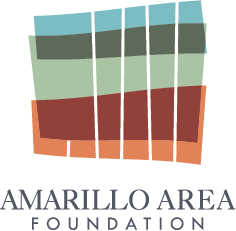A Culture of Hope
As we begin our fourth week of the ACE Blog series, we are shifting our focus to Amarillo Independent School District’s perspective on ACE. More specifically, we are letting AISD Superintendent, Dr. Dana West; Caprock Principal, David Bishop; and Guidance and Counselling Program Director, Tracey Morman do most of the talking.
Like good reporters we did some research on AISD’s mission and belief statements beforehand. Belief statement No. 2 immediately stood out: “We believe that education is the equalizer in our society and that our schools can and should provide a culture of hope for all children.” Sounds vaguely like ACE, no? So we decided to chat with Dr. West to see if she agreed.
AAF: When did you first learn about ACE and what was your initial perception of it?
Superintendent West: Well you’re going to laugh when you hear this, but I was new to Amarillo as a principal at Travis Middle School and I really just thought ACE was this assembly we did every six weeks encouraging attendance, grades, and good behavior. Obviously, my understanding has changed since then. The conversation transitions from “here’s a certificate and free pencil” to “people in our community will help you pay for and achieve your scholastic goals.”
AAF: That is funny. As an administrator what would you value most then about ACE?
Superintendent West: It’s our community’s commitment to our district’s mission. Graduate every student prepared for success beyond high school. What is your plan? Your community supports you.
AAF: You’re emphasizing both ACE and No Limits No Excuses with that statement. So I was really moved to see that one of AISD’s belief statements is that education is one of the great equalizers in our society and you believe that your schools should provide a culture of hope for all children. How do you see ACE contributing to that belief statement?
Superintendent West: ACE reiterates the culture of hope in our schools by emphasizing that everyone is committed to the economic development of Amarillo. ACE says our community realizes that our economic development relies on our scholars in our local schools. In many ways ACE makes our community put our money where our mouth is to show that support. We can then create hope in our students because we have a program that blatantly displays that community effort and support.
Creating a culture of community support all their own, is Principal David Bishop of Caprock and his staff. We sat down with Mr. Bishop and here is what he had to say:
Principal Bishop: ACE is a tool that helps us build a conversation around a K-16 plan instead of a K-12 plan. If you shape students to believe going to college is achievable and a part of their personal plan just like going to high school is, you would be amazed by how much they listen and internalize that message. ACE has specifically caused a cultural shift on our campus. College wouldn’t have always been a part of the conversation here 10-15 years ago.
AAF: Can you tell me a bit about what you have done to make ACE unique at your campus?
Principal Bishop: Well we have two really special features to our ACE program that are fairly new. We have the $25,000 check we give to each of our incoming freshman students on our Freshman Walk and we have ACE Insurance Agents.
AAF: Explain to me more about these checks. What are they?
Principal Bishop: They are basically these big cardboard blank checks with the students’ name written in the amount of $25,000, which is approximately how much it costs to go to a regional four year college. It’s administered by the “First Bank of Caprock” to show that we will work to give this great resource to them if they will maintain an overall 85 GPA, have a 95% attendance record, and follow all school rules and regulations.

AAF: And you write out the name of each freshman on these checks, and go to all of their houses?
Principal Bishop: Yes, every single incoming freshman. We’ve been doing that for about 3 years now. It is such an empowering activity to take part in and see the pure joy on the students’ faces, as well as the relief in their parents faces.
AAF: You also mentioned ACE Insurance Agents, tell me more about them.
Principal Bishop: ACE Insurance agents are teachers that volunteer to mentor and follow up with ACE students that are on ACE probation which could mean the student is not meeting the ACE requirements regarding attendance and/or grades. These teachers visit with their chosen student or students and give them the motivation and accountability the student might need to come to school or work on their grades. We began this just last spring but already saw a noticeable decrease in the number of students we were losing due to ACE probation issues.
AAF: Your staff is doing a ton to show these kids they are valued. That must be a lot of work.
Principal Bishop: It is a lot of work, but what is the alternative? We have come too far to give up now.
It is also worth noting that as of next year Caprock will have their own Rock Resource Center, a place where all students can come to receive help with all college related matters. The ACE program, College and Career Center, and WTAMU’s Trio programs will be able to utilize the Center to better work with students. The resource center will also contain a computer lab. Evidently, Caprock believes all of its students deserve to be a success beyond high school.
A previous provider of resources at Caprock, and now a greater provider of all guidance and counselling resources for the district, is Guidance and Counselling Program Director, Tracey Morman. We also sat down with Ms. Morman to hear some of her thoughts about ACE.
Director Morman: ACE staff are really like extra counsellors. Y’all push them to consider college, but you aren’t college counselors. So you are very much a part of the counseling team at AISD because you are able to have conversations with students that sometimes we are not able to have.
AAF: I’m glad we’re able to help out in that way. You work a lot with students, what are some of the biggest misconceptions about ACE you recognize that they have?
Director Morman: Well with the students the biggest misconception I see is that they think they can only go to AC. They think because they are ACE eligible we are placing them in this category where they think they are only cut out to be a two year community college student. Obviously, all students don’t feel that way. But some that don’t understand the program do. I would really like for them to see ACE as a vote of confidence in their ability to succeed. They don’t just have to apply to AC and WT, they can apply to Harvard or Duke and we want them to go to Harvard or Duke if they are capable. ACE is like an additional back up, giving them more options, and affordable options should they need them.
AAF: So in some ways you are seeing certain students under-apply for college then?
Director Morman: Yes, some of our really talented students that go to Palo Duro, Caprock, and Tascosa who are ACE eligible may be under-applying.
AAF: Would you like to leave us with your favorite thing about ACE?
Director Morman: My absolute favorite thing about ACE is that it pays for books on top of tuition because a lot of financial aid won’t kick in until October. So our ACE students are able to get their books at the beginning of the semester and be really prepared for classes.
And, with that we will see you next week, as my colleague Broc Carter heads over to Amarillo College and continues to ask: “How does ACE shape your campus?”


